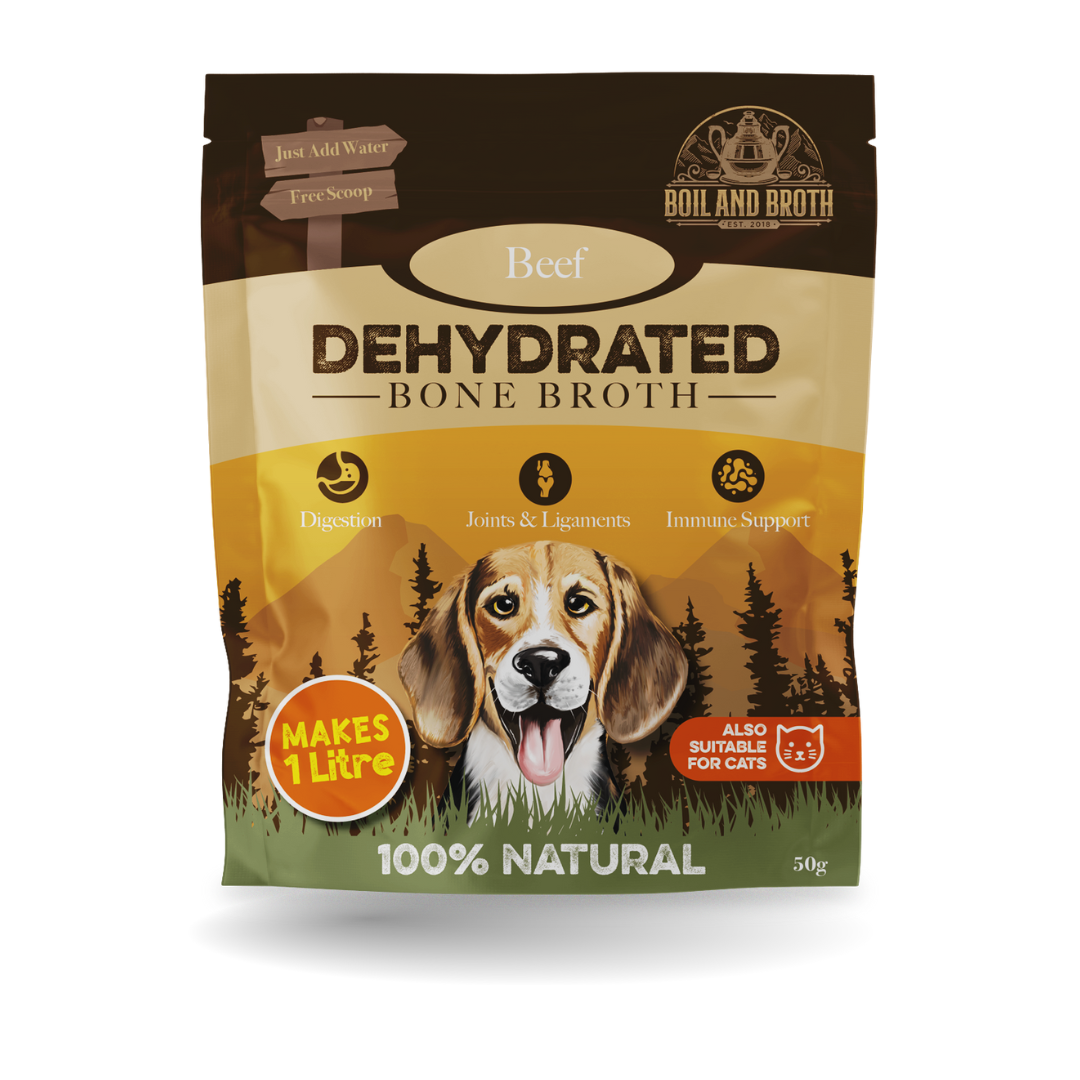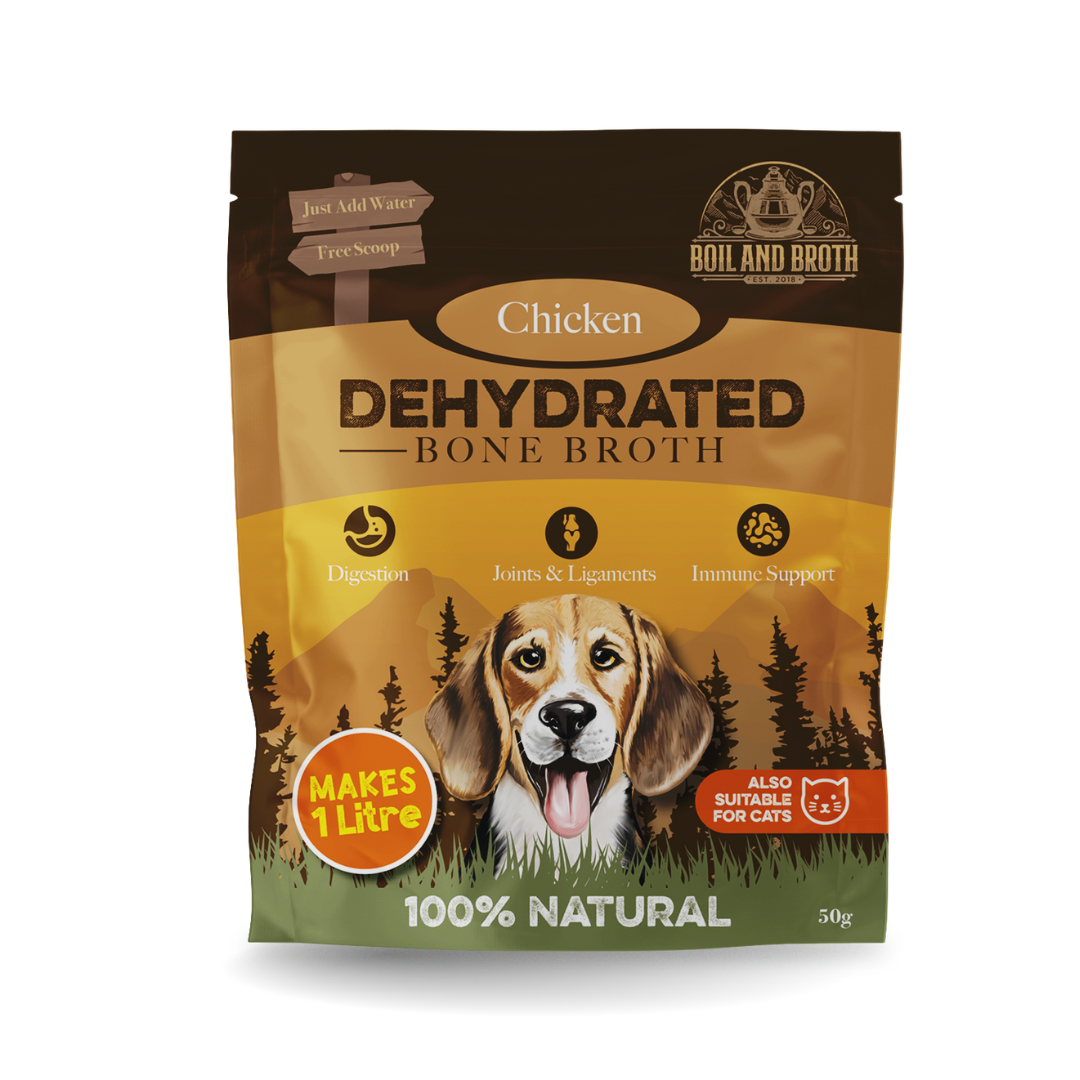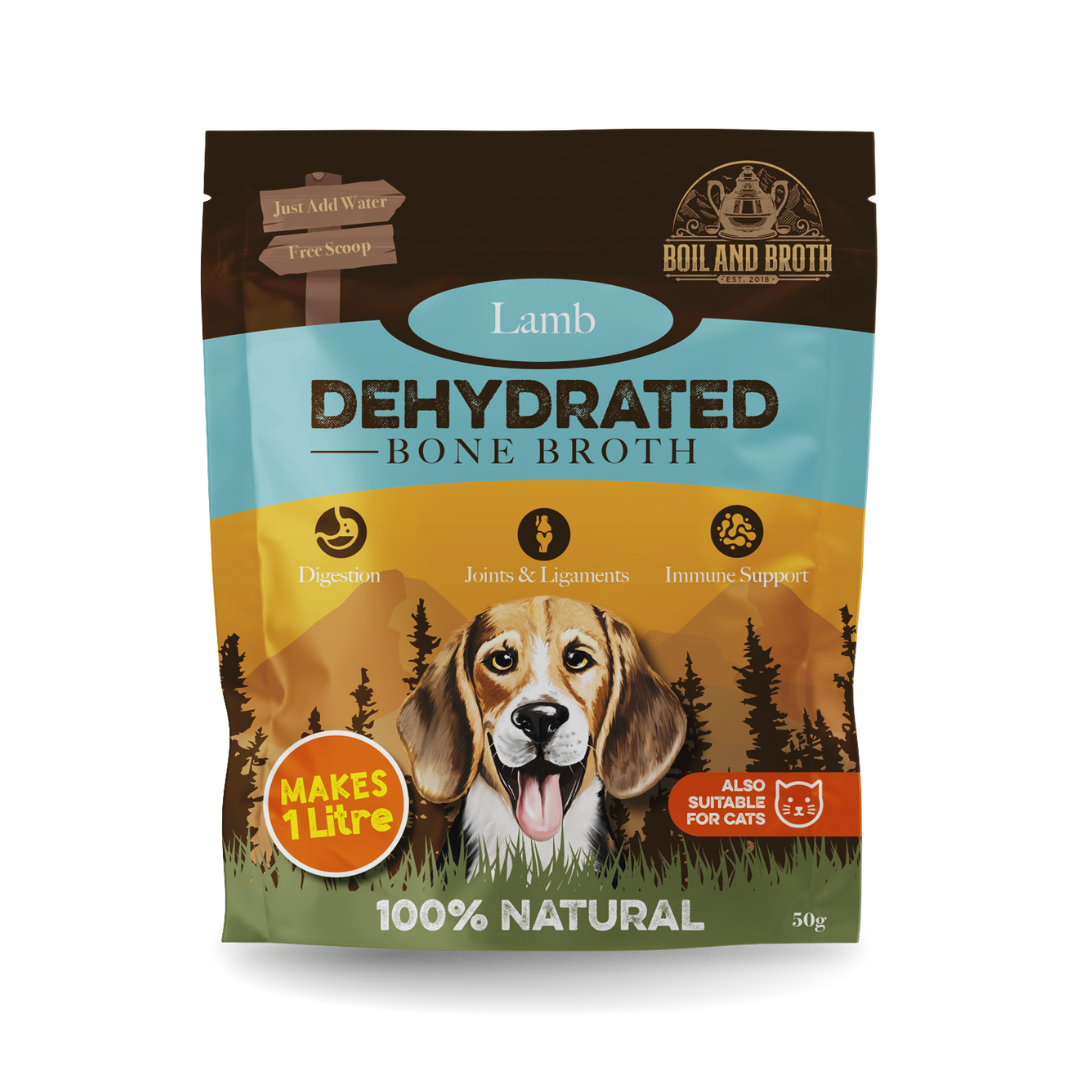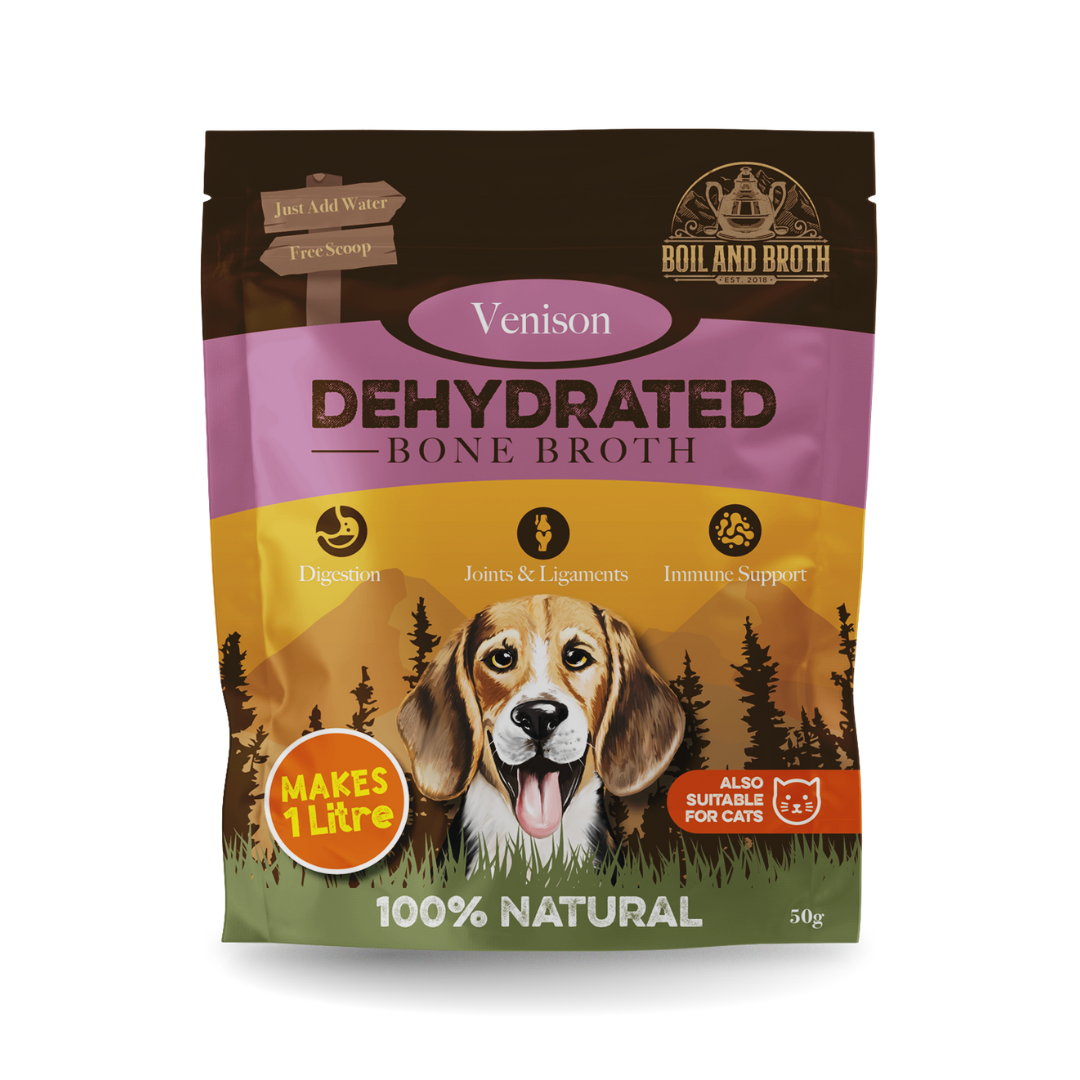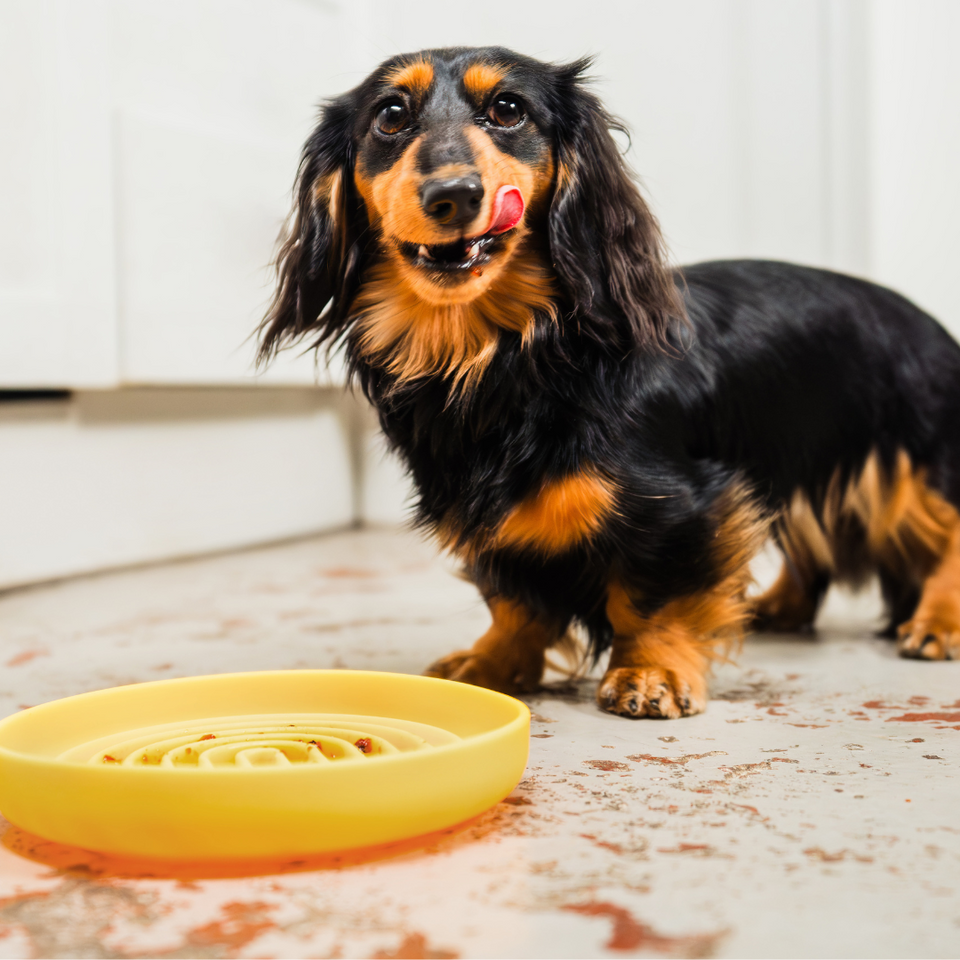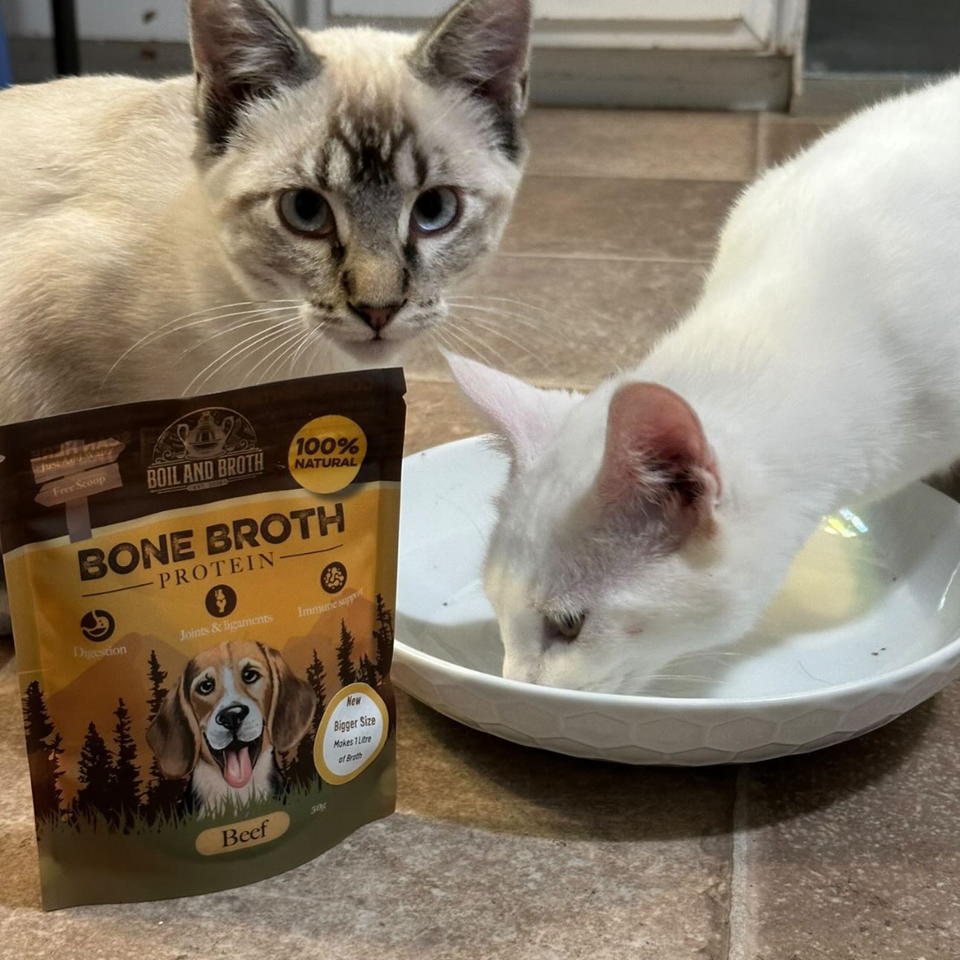Six Foods to Support Eye Health for Dogs
Did you know your dog’s diet can play a huge role in keeping their eyes healthy?
Just like humans, dogs can suffer from red, irritated, or dry eyes. The right foods can hydrate, lubricate, and nourish their eyes naturally — helping prevent discomfort and even slow-healing injuries.
Here are six simple foods that can support your dog’s eye health.
1. Purple Foods
Purple vegetables such as purple sweet potatoes, beets, red cabbage, and blueberries are rich in anthocyanins — powerful antioxidants that protect cells in the eyes and blood vessels. They also contain lutein and zeaxanthin, which help filter blue light and protect the retina from sun damage.
Add a spoonful of mashed purple veg to your dog’s dinner, especially when in season. Cook roots whole to retain pigments and, if the water turns purple, include a little in the food too for an extra antioxidant boost.
2. Organ Meat
Organ meats, especially liver, are a top source of vitamin A, essential for healthy eyes. Vitamin A deficiency can lead to vision loss, dry eyes, and corneal ulcers.
A few grams of beef liver (around 5 g for a small dog) is usually enough. If stools turn black, pause feeding until they return to normal. Toxicity from food sources is rare, but be cautious with supplements such as cod liver oil and follow recommended doses.
3. Oily Fish
Oily fish such as mackerel, sardines, salmon, herring, and sprats are rich in omega-3 fatty acids — particularly DHA and EPA, which must come from the diet. Around 30% of the retina is made up of DHA, making these fats vital for eye lubrication and tear production.
If using canned fish, buy in spring water or drain excess oil. Dogs that don’t eat fish can benefit from a fish oil supplement for their omega-3 needs.
4. Eggs
Eggs provide both omega-3 and vitamin D, which plays a role in tear production and immune regulation. Studies have shown that low vitamin D levels are linked to dry eye.
For a simple boost, add a cooked egg to your dog’s meal once or twice a week — and enjoy a sunny walk together to increase vitamin D naturally!
5. Chickpeas
These humble legumes are a good plant-based source of protein and amino acids, particularly arginine, which has been shown to help prevent cataracts in dogs. Chickpeas also support general eye clarity and lubrication.
Because legumes can be harder to digest, feed them occasionally rather than daily. Mash or puree them well, and rinse canned chickpeas before use.
6. Beef Mince
Beef mince is high in zinc, an essential mineral for eye health, skin repair, and immune function. Zinc helps release vitamin A from the liver to form protective pigments in the retina.
Most home-prepared diets are low in zinc, so adding a spoon of beef mince to each meal helps maintain balance. Remember that beef liver is high in copper, which competes with zinc absorption. Limit beef liver to about 5 g for a small dog or swap occasionally for chicken liver, which contains less copper (up to 40 g can be fed safely).
A Simple At-Home Eye Care Tip
You can help soothe your dog’s eyes with a moist, coconut-oil compress. Coconut oil has antibacterial, antifungal, and anti-inflammatory properties.
Soak a soft cotton cloth in boiled water with a few drops of coconut oil.
Allow it to cool to a safe temperature and wring out excess water.
Place the damp cloth gently over your dog’s closed eyes while they rest.
Alternatively, lightly wipe the area with a small amount of coconut oil (with very clean hands).
For flat-faced breeds, always dry folds around the nose afterward to prevent fungal growth. Herbal additions like chamomile or eyebright can be effective too, but always consult a professional before use.
Why Eye Health Matters
Good eye health helps dogs stay active, confident, and safe. Many conditions start subtly — a little redness, cloudiness, or excess tearing — but can progress quickly. Supporting your dog’s eyes through good nutrition is a simple, natural way to help prevent problems.
However, if your dog’s eyes change suddenly, or you notice pain, squinting, or vision loss, always contact your vet. Eyes are delicate, and issues can worsen rapidly.
Final Thoughts and Disclaimer
The foods above can support healthy dogs with mild symptoms like dryness or irritation, but they’re not a replacement for veterinary care. Every dog is unique, and some may be intolerant to certain foods. Nutrients always work together — no single food should be relied on long-term.
Aim for a complete, balanced diet rich in natural, whole foods. The key is variety and moderation — a mix of fresh meat, fish, eggs, vegetables, and nourishing broths will help provide the nutrients your dog needs for strong, healthy eyes.
If your dog has ongoing eye issues or is on medication, seek guidance from your vet or a qualified nutritional therapist before making changes to their diet.
Blog posts
-
Read more
Stoke-on-Trent, 7 November 2025, Local Dorset business, Boil and Broth, has been honoured with the Export Award, sponsored by Associated Veterinary Services, at the nationally recognised Pet Industry Federation (PIF) Awards. The ceremony took place on Thursday 6 November at...
-
Read more
The Mineral Composition of Bone Broth and Its Role in Hydration Dehydration in pets occurs when their body loses more water than they take in, leading to an imbalance that affects normal bodily functions. It can be caused by vomiting,...
-
Read more
Written By Dr Nick Thompson I've always loved finding natural ways to care for pets, and bone broth—an ancient nutrient-packed liquid from simmered bones—has become a key part of my routine, both at home and in my veterinary practice. I've...



